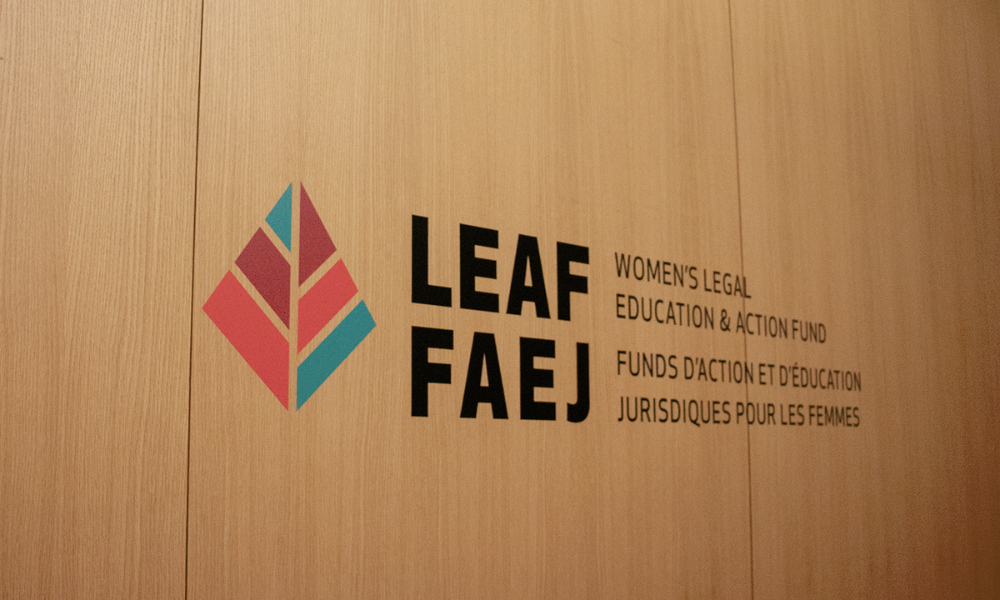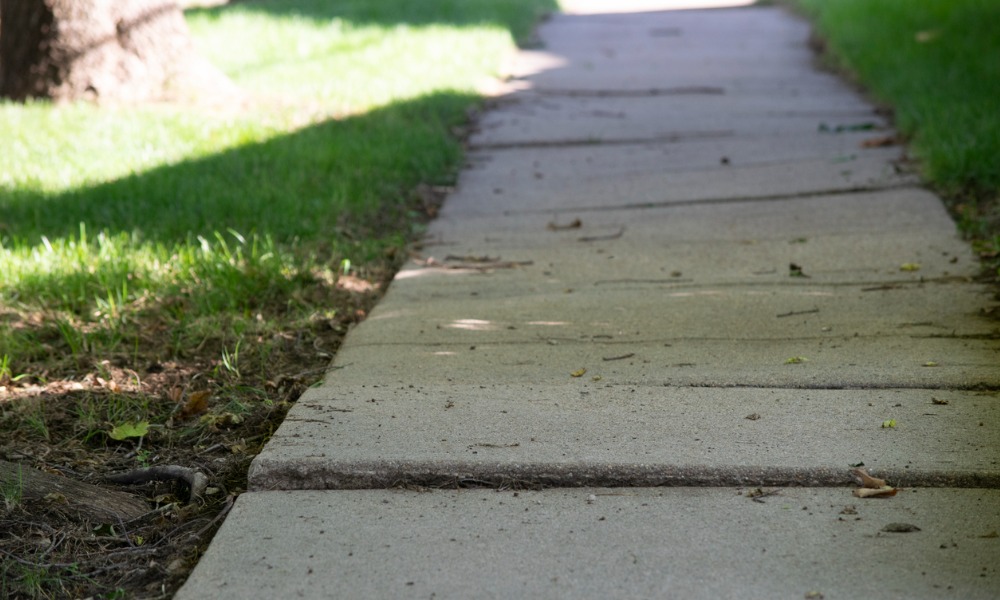Event occurring 39 years to the day after equality guarantee came into effect

On April 17, 1985, s. 15 of the Charter of Rights and Freedoms came into effect, guaranteeing every person in Canada equality under the law.
The Women’s Legal Education & Action Fund (LEAF) was founded the same day. This year, LEAF’s annual Evening for Equality falls on April 17, also known as Equality Day.
But LEAF’s communications and advocacy manager, Jen Gammad, says it has been a “tough year, overall” for the gender equality movement. The coordinated attacks on gender equality and reproductive rights have intensified, she says.
“We've seen provinces across the country considering or implementing policies or legislation that amount to attacks on trans communities and specifically trans youth,” says Gammad. “At a time where we really want to see protections for queer and trans youth strengthened, we're actually seeing – in a lot of provinces – that what existing protections exist are being rolled back.”
Saskatchewan recently passed a law requiring parental consent for children under 16 to change names or pronouns at school. UR Pride, an LGBTQ+ advocacy organization at the University of Regina, has challenged the law, arguing that it denies gender-diverse youth an educational environment free from discrimination. The Saskatchewan government has invoked the notwithstanding clause. Similar laws concerning pronoun use at school have been enacted in Alberta and New Brunswick.
“For the feminist movement, it's really important for us to be involved,” says Gammad. “Our struggles are intertwined. The struggle for trans liberation, the struggle for ending gender discrimination… One cannot happen without the other. Because it comes from a common history of gender subjugation and control.”
An Evening for Equality takes place Wednesday, April 17, at the Omni King Edward Hotel Crystal Ballroom. Tickets are now on sale, and funds will be used to support LEAF’s work.
Sharon George, senior development officer at LEAF, says the event brings together community members who have supported the organization.
“It's a way to – number one – thank them for being part of LEAF’s journey. But number two, to also raise awareness about the work that we're doing – the work that needs to continue to be done – until we can reach a level of gender parity.”
“We want to engage new members. We want to grow,” says George. “This event will help us celebrate our achievements but also highlight what needs to be done.”
While the year has presented challenges for equality rights, LEAF has been busy on several initiatives, including interventions in significant Charter litigation.
LEAF recently released a tool called the abortion access tracker.
“This is particularly important considering all the rights being rolled back in the States and the existing access gaps throughout Canada,” says Gammad. “And we're hoping it's going to be an important tool for advocates and policymakers working to protect and strengthen access to abortion in Canada.”
The organization has also focused on survivors of sexual violence, she says. While lawmakers across Canada have attempted to enhance safety and justice for survivors by expanding and strengthening the criminal legal system, Gammad believes that approach is misguided.
“We haven't seen gender-based violence be effectively curtailed, so we've spent the past year advocating for governments to reexamine how to best protect survivors, especially marginalized survivors: Black, Indigenous, and racialized ones who are already disproportionately targeted by law enforcement.”
LEAF’s Avenues to Justice Project examines restorative and transformative justice as a response to sexual violence and how these can be incorporated into the justice system. LEAF advocated for survivors in sexual assault cases to be able to choose whether there was a publication ban on their identity as part of Bill S-12, An Act to amend the Criminal Code, the Sex Offender Information Registration Act and the International Transfer of Offenders Act.
Gammad says LEAF has also focused on ensuring that regulations dealing with artificial intelligence are centred on human rights.
LEAF was part of the successful challenge to Ontario’s Bill 124, which limited compensation increases for public sector workers. The Court of Appeal found the legislation violated the collective bargaining rights of unionized employees. “This decision is a huge victory for women workers in Ontario,” says Gammad.








